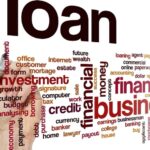So, you’ve built up some serious equity in your home, and now you’re considering a home equity loan to fund that renovation or consolidate debt. But, as with any loan, the key to getting the most out of it is understanding the interest rates. Home equity loan rates can make or break your borrowing experience, impacting the overall cost of your loan and how easily you can pay it back.
This article covers the essential aspects of home equity loan rates, from factors that influence rates to tips for securing the lowest rate possible. Whether you’re a first-time borrower or looking to refinance, this guide will help you make informed choices, ensuring you get the best deal on your home equity loan.
What Are Home Equity Loan Rates?
Home equity loan rates are the interest rates lenders charge on loans secured by your home’s equity. These rates are fixed, meaning they stay the same throughout the loan term. Unlike other loans that may fluctuate, fixed home equity loan rates provide stability, allowing you to plan your finances with more certainty.
Why Do Home Equity Loan Rates Matter?
The rate you lock in for your home equity loan impacts both the monthly payments and the total cost of borrowing. Here’s why home equity loan rates are so important:
- Lower Monthly Payments: A lower rate means less interest paid monthly.
- Affordability Over Time: Fixed rates ensure predictability, protecting you from potential rate hikes.
- Loan Cost: Over time, a high rate adds up. The difference between a few percentage points can mean thousands of dollars saved (or lost) on a larger loan.
Factors Influencing Home Equity Loan Rates
Many elements influence the rates lenders offer on home equity loans. Here are some of the key factors to keep in mind:
1. Credit Score
- Lenders look at your credit score to assess risk. Generally, the higher your score, the lower your interest rate.
- If your score is in the 700s or above, you’re more likely to secure a competitive rate.
2. Loan-to-Value Ratio (LTV)
- LTV ratio measures how much equity you’re borrowing against compared to your home’s current value.
- A lower LTV (meaning you borrow less relative to your home’s worth) often results in better rates.
3. Economic Conditions
- Market conditions play a big role. During economic downturns, rates might be lower to encourage borrowing, while a booming economy can drive them up.
- Pay attention to trends in the broader financial market, as they can impact your options.
4. Loan Amount and Term
- Larger loans and shorter terms might sometimes come with lower rates.
- Fixed-rate home equity loans are typically available in terms from 5 to 30 years, with shorter terms generally featuring lower rates.
Tips for Securing the Best Home Equity Loan Rates
Let’s face it, no one wants to pay more in interest than necessary. Here are some strategies to ensure you get the best possible rate on your home equity loan:
1. Improve Your Credit Score
- Check Your Credit Report: Before applying, review your credit report for errors that could be lowering your score.
- Pay Down Debts: Reducing other debts can improve your debt-to-income ratio, boosting your score.
- Make Timely Payments: On-time payments over several months can significantly improve your score.
2. Shop Around and Compare Lenders
- Don’t settle for the first lender you approach. Rates vary widely among lenders, so compare options to find the best deal.
- Check out local banks, online lenders, and credit unions, as they might offer competitive rates or special promotions.
3. Consider the Loan Term
- A shorter loan term may come with lower rates but higher monthly payments. Decide what balance of rate and term fits your budget.
4. Negotiate Fees and Closing Costs
- Many borrowers don’t realize they can negotiate loan fees and closing costs.
- Ask lenders if they offer discounts or can waive certain fees, which can lower your overall cost even if the rate stays the same.
Common FAQs About Home Equity Loan Rates
1. What is a typical home equity loan rate?
Home equity loan rates generally range from 4% to 9%, depending on factors like credit score, loan amount, and the economic environment. Rates can vary widely, so it’s wise to shop around.
2. Are home equity loan rates fixed or variable?
Most home equity loan rates are fixed, meaning they stay constant for the loan term. However, some lenders offer variable-rate options, though these are less common and can be riskier due to potential rate fluctuations.
3. How do home equity loan rates compare to HELOC rates?
Home equity loans typically have fixed rates, while Home Equity Lines of Credit (HELOCs) usually come with variable rates. This means HELOC rates can increase or decrease over time, while home equity loan rates remain steady.
4. Can I refinance my home equity loan for a lower rate?
Yes, refinancing your home equity loan might lower your interest rate, especially if your credit score has improved or market rates have dropped since you first secured the loan. Just be sure to weigh the costs of refinancing against potential savings.
5. What’s the difference between APR and interest rate?
The interest rate is the cost of borrowing, while the Annual Percentage Rate (APR) includes both the interest rate and additional fees, giving you a more accurate picture of the loan’s total cost.
Types of Home Equity Loans and Their Rates
Home equity loans come in a few varieties, each with its own rate implications:
Fixed-Rate Home Equity Loans
As the name suggests, these loans have a set rate that remains unchanged over the loan term. Fixed-rate loans provide predictability and are ideal if you want consistent payments.
Variable-Rate Home Equity Loans
Some lenders offer variable-rate home equity loans, though these are less common. Rates fluctuate based on market conditions, which can lead to lower payments in a declining rate environment but pose risks if rates increase.
Hybrid Options
A few lenders also offer “hybrid” loans, where the rate is fixed for an initial period and then becomes variable. Hybrid loans can be beneficial if you expect to pay off the loan before the variable period begins.
Benefits and Drawbacks of Fixed vs. Variable Home Equity Loan Rates
| Feature | Fixed Rate | Variable Rate |
| Predictability | Provides consistent monthly payments | Monthly payments can fluctuate |
| Interest Costs | Typically slightly higher than variable | May start lower but can increase over time |
| Ideal For | Those seeking stability | Borrowers comfortable with risk |
Summary
Securing the right home equity loan rate can save you thousands of dollars over the life of your loan. By understanding the factors that influence rates, taking steps to improve your financial profile, and shopping around, you can maximize the value of your home equity loan.
Key Takeaways
- Research Lenders: Don’t settle for the first offer—compare rates to get the best deal.
- Improve Your Credit Score: Small changes can make a big difference in the rates you’re offered.
- Consider Fixed vs. Variable Rates: Decide which type aligns with your financial goals.
Taking the time to understand your options and how rates work will empower you to make the best decision for your financial future.






